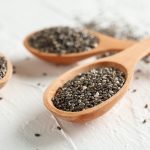Whether you are a vegetarian, non-vegetarian or vegan, vegetables are a routine source of nutrition. There is compelling evidence that a diet rich in fruits and vegetables can lower the risk of heart disease and stroke, making vegetables an important part of our diet. Ideally, half of every meal should comprise vegetables and fruits.
Want to know which are the best or most nutritious vegetables? They all are! Eating a wide variety of vegetables as a part of your meals will ensure that your body gets all the nutrients it needs. Try to skip the potatoes though!! As they are a starchy vegetable, they are not only linked with weight gain, but also have a negative impact on blood sugar.
Benefits of Eating Adequate Vegetables include:
1. Lowered blood pressure
2. Reduced risk of heart disease/stroke
3. Lowered risk of eye problems
4. A healthy digestive system
5. Positive effect on blood sugar levels
6. Protection against certain types of cancer
7. Weight loss
Although it seems easy enough to get most of the vitamins, minerals and micronutrients you need from the food you eat every day, it’s not always possible. Therefore it’s imperative to pay attention to what you eat, especially the number of vegetables, on a daily basis. Replacing processed or pre-packaged foods with vegetables and fruits can have a significant impact on health. For example, eating high-fibre vegetables like carrots helps reduce bad cholesterol, optimises sugar levels, prevents constipation and helps with weight loss by reaching early satiety. Beans are a great source of iron while green leafy vegetables like spinach and kale are great sources of Vitamin A. Lycopene is a type of carotenoid (compounds that the body can turn into vitamin A) found in brightly coloured fruits and vegetables such as carrots, tomatoes, winter squash etc.
There are at least nine different families of fruits and vegetables, each with hundreds of different plant compounds beneficial to health. Since no single vegetable contains all the nutrients required by your body, eat a variety of vegetables to give your body the mix of nutrients it requires.
Get More Nutrition from Veggies By
1. Including vegetables in your breakfast alongside eggs or potatoes.
2. Snacking on veggie sticks such as cucumber, bell pepper, carrots etc. instead of opting for unhealthier alternatives.
3. Trying to eat 4 to 5 cups of fruits and vegetables every day.
4. Replacing potatoes with foods such as whole grains, beans etc, which have healthier carbohydrates.
5. If you’re buying canned/frozen vegetables, read the labels and be sure to buy products with low levels of sodium and added sugar.
A study was done as part of the Harvard-based Nurses’ Health Study and Health Professionals Follow-up Study included almost 110,000 men and women whose health and dietary habits were followed for 14 years. It was found that higher the average daily intake of fruits and vegetables, lower the chances of developing cardiovascular disease. Those who averaged 8 or more servings a day were 30% less likely to have had a heart attack or stroke. Although all fruits and vegetables likely contributed to this benefit, green leafy vegetables, such as lettuce, spinach, cabbage and mustard greens, were most strongly associated with decreased risk of heart disease.
So, given their indisputable benefits, it’s time to load up on your vegetables. If you already consume large quantities of vegetables in your diet, eat your colours too! The different colours make your food look more fun and interesting, while also ensuring the inclusion of all the various nutrients to your diet. Remember that consuming different varieties of vegetables is as important as the quantity of vegetables consumed!
Reviewed by- Dr. N. Nayak, MBBS, MD






